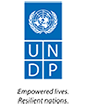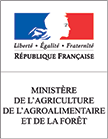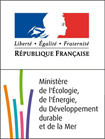
I am Maureen Arguedas from Costa Rica. When I was a child I realized that I was particularly motivated for nature and science. So, I studied Forest Engineering. During the five years in college, I felt extremely happy and strongly motivated to keep learning and implementing what I learned, so I started volunteering during my holidays for organizations with an environmental approach.
My first job was in an amazing place: the rain forest of the Osa Peninsula, which is the largest remaining tract of forest on the Pacific coast of Central America. My work was focused on the establishment of permanent plots and I also did the measurements of trees for a research project about carbon sequestration and ecosystem services. I spent many months over there and it was an amazing experience. During my time there I understood more about the important role of the forest in the livelihoods and welfare of a vast number of people.
After this amazing experience I started seeing the forest in a more holistic way. Therefore, I started studying a masters degree in which the social dimension plays an important role. The program I chose is called: Environmental Socioeconomics. The research I did is entitled “Economic Valuation of Mangrove Ecosystem Services in Gulf of Nicoya”, and its main objective was to evaluate the economic importance of the ecosystem services provided by mangroves to the communities of the Gulf of Nicoya, Costa Rica.
Since the importance of ecosystem services to human society has many dimensions, the research was carried out in two parts. First, we conducted a local perception study on the role of mangroves in people’s livelihoods, this part was performed using focus groups and household interviews. Then, we conducted an economic valuation of two environmental services: carbon stocks (blue carbon) and provision of food (mollusks).
During the research project I spent time in marine communities with fishermen and mollusk extractors. During this time I had interesting experiences regarding access to scarce resources, such as fishes and mollusk. I learnt that rules on resource access and land shape social and conservation outcomes. Also, I learnt that all the different stakeholders need to be clear about their rights and responsibilities. Specifically talking about marine communities and from my experience in Costa Rica, I consider that co-management is an effective participatory resource management regime because it gives and recognizes the rights of the local people.
During my professional career I have learnt that there isn’t a general solution for achieving social, economic and environmental objectives in areas where productive land uses compete with environmental and biodiversity goals. But, there are successful experiences from which we can learn, and this why I am extremely happy to exchange and build knowledge and experiences in an interdisciplinary and multicultural atmosphere at the Global Landscape Forum 2015.
Maureen Arguedas is one of the 10 young champions who will work on the “ Rights and Tenure” Landscape challenge with Youth program’s partner: CIFOR.
Learn more about the Global Landscapes Forum’s Youth program, meet our 50 youth champions and discover the 5 Landscapes challenges they will take up, in December, in Paris.
This youth innovator is supported by:





































